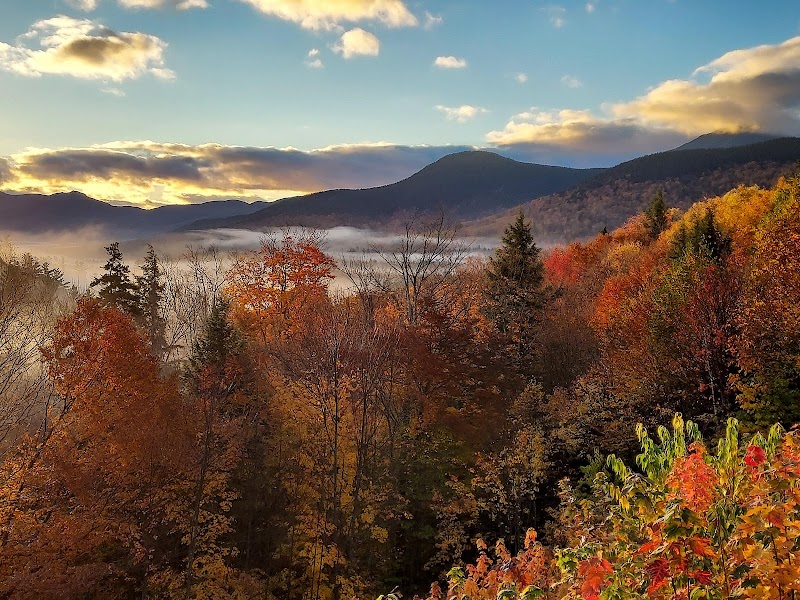
Summiting Mount Washington: Trail, Tuckerman Ravine, or Cog Railway Adventure
Mount Washington offers a dynamic ascent for adventurers—hiking rugged trails, tackling winter’s Tuckerman Ravine, or riding the historic Cog Railway. Discover practical tips and essential insights to prepare for a summit experience unlike any other.
Start Early to Beat Crowds and Weather
Begin your hike or cog railway trip early in the morning to avoid afternoon storms and share the trail with fewer people. This timing maximizes daylight and safety on the mountain.
Dress in Layers and Prepare for Wind
Mount Washington’s summit can be significantly colder and windier than the base. Layered clothing, windproof jackets, and gloves are crucial year-round.
Stay Hydrated and Carry Sufficient Water
Hydration is key to endurance, especially on steep climbs. Carry at least 2 liters of water and consider a hydration pack for hands-free access.
Know Your Route and Weather Forecast
Check updated trail conditions and weather reports before your trip. Changing weather can turn challenging quickly; preparedness is vital.
Summiting Mount Washington: Trail, Tuckerman Ravine, or Cog Railway Adventure
Mount Washington stands fiercely—a mountain that challenges your stamina and rewards your resolve. Whether you choose to hike the rugged trails, brave the iconic Tuckerman Ravine in winter, or take the historic Cog Railway, the summit offers an adventure sharp with the thrill of elevation and the embrace of northern New England’s wilderness.
Starting on foot, the trails provide distinct experiences. The Tuckerman Ravine Trail, 4.2 miles one-way with an elevation gain of about 4,250 feet, commands respect with its steep granite steps and shrubby ledges. The forest here, alive with conifer whispers and the daring rush of ravine streams, pushes you forward, testing your legs and will. During the warmer months, expect crisp mountain air mingling with the scent of pine and a panorama that unfolds with each upward switchback.
For a less demanding ascent, the Mount Washington Cog Railway offers a mechanical climb through fog and forest, ascending nearly 4,500 feet over 3 miles in 90 minutes. The train breathes steam and steel, clattering upwards on steep rails—an experience both nostalgic and practical. From the summit, every direction unfolds a landscape fiercely itself: sprawling valleys, jagged ridges, and clouds that seem to swirl on cue.
Winter adventurers face the Tuckerman Ravine Trail transformed into a snow laboratory. Here, mountaineers engage with ice and snow, relying on crampons, ice axes, and measured caution. The ravine dares climbers with avalanche risks and shifting weather, demanding respect and preparation.
Practical tips ensure you meet Mount Washington on terms that favor safety and success. Hydrate thoroughly—the climb’s altitude saps moisture, and weather changes can come swift. Sturdy, broken-in boots with solid traction matter more than speed; quick feet slip into trouble. Aim for early starts to avoid afternoon storms and maximize daylight.
Whether gripping rocks, passing rushing streams, or riding the cog’s clack, the mountain moves you. It is no conqueror but a challenge—one that sharpens your senses and leaves you steady with the satisfaction of standing where the air thins and the world spreads wide beneath you.
Nearby Trips
All Adventures
Boat Charters
Water Activities
Adventures near North Conway, New Hampshire
Discover the unique and memorable adventures that make North Conway, New Hampshire special.
Frequently Asked Questions
What is the easiest way to reach the summit of Mount Washington?
The Cog Railway offers the easiest and most accessible way to reach Mount Washington’s summit without strenuous physical effort, taking about 90 minutes from base to peak.
Is the Tuckerman Ravine Trail suitable for beginners?
Tuckerman Ravine Trail is challenging due to its steep elevation gain and rugged terrain, making it better suited for hikers with moderate to high fitness and some mountain trail experience.
When is the best time of year to hike Mount Washington safely?
Late spring through early fall (May to September) offers the safest and most stable conditions, with trails mostly clear of snow and milder weather.
Are permits required to hike Mount Washington or take the Cog Railway?
No permits are required for hiking; however, the Cog Railway tickets must be reserved in advance due to popularity and limited capacity.
What weather hazards should I prepare for on Mount Washington?
Rapid weather changes, high winds, and sudden temperature drops are common. Hypothermia and storms are genuine risks even in summer; always check forecasts and be prepared.
Can I hike Mount Washington in winter without special equipment?
Winter hiking on Mount Washington requires technical gear like crampons, ice axes, and knowledge of avalanche safety. It’s not recommended for casual hikers without experience.
Recommended Gear
Hiking Boots
Robust, waterproof boots with good ankle support and traction are critical for rocky, steep, and sometimes slippery terrain.
Layered Clothing System
A base moisture-wicking layer, insulating mid-layer, and windproof shell allow quick adjustment to changing weather conditions.
Hydration Pack or Water Bottles
Carrying sufficient water is essential as streams on the trail may not be reliable or safe to drink from without treatment.
Crampons and Ice Axe
Necessary for safe travel on snow and ice in winter, especially on the steep icy slopes of Tuckerman Ravine.
Local Insights
Hidden Gems
- "Hermit Lake Shelters offer a quieter rest point on the Tuckerman Ravine Trail with surprisingly good views."
- "The Old Bridle Path provides a less crowded but scenic alternative route with historical significance."
Wildlife
- "Look for the elusive American marten around forest edges and the soaring peregrine falcon high near the summit cliffs."
History
"Mount Washington was home to one of the earliest mountain observatories; its weather records and research have shaped mountain meteorology worldwide."
